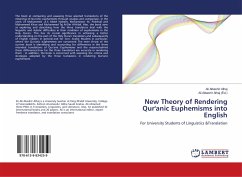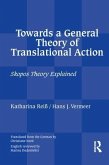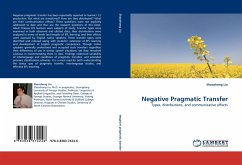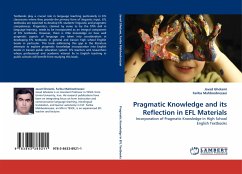The primary concern of this book is to bridge the gap between cultures. The author investigates how translators deal with Qur'anic euphemistic expressions through a pragmatic and translational analysis. Politeness theory and Grice's theory of implicature are highlighted in order to examine whether the five translations (Asad, Bewley, Hilali & Khan, Irving, and Itani) convey the intended meaning or sacrifice it for the sake of euphemism. Consequently, misunderstanding may occur in these translations and lead to distorting the original text.
Bitte wählen Sie Ihr Anliegen aus.
Rechnungen
Retourenschein anfordern
Bestellstatus
Storno








